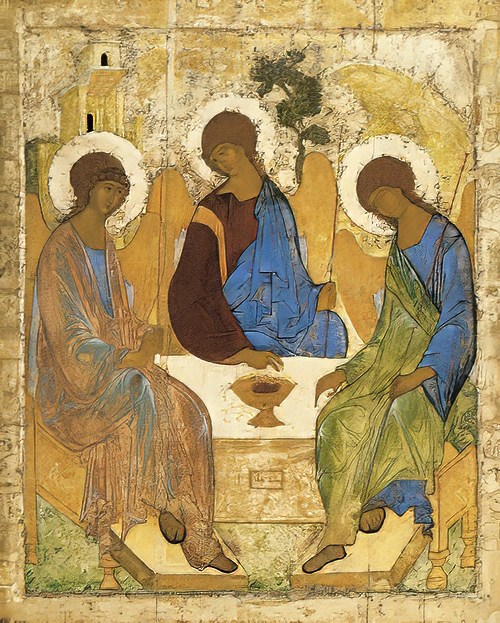
You may have seen reproductions of the famous Andrei Rublev icon of the Trinity.
Written for the abbot of the Trinity Monastery in Russia, the icon’s original title was ‘The Hospitality of Abraham’.
The icon depicts the three mysterious strangers who visited Abraham (Genesis 18:1 -15)
In the Genesis account the Lord visits Abraham in the form of three men who are apparently angels representing God.
Abraham offers them the hospitality of foot washing, rest under a shade tree, and a meal and they offered him the announcement that God was going to give he and his wife Sarah a son, though Sarah was far past the age of childbearing.
The three persons are seated around a table in an attitude of harmony and peace; the very lines of the icon create a circle within which the unity of the persons, the manner of their presence to one another, is visible. At the focal point of the icon there is a cup between them on the table. It is a wonderful use of symbol and suggestion.
The Trinity hints at hospitality. It is as if the divine persons were saying: be one with one another as we are one. (See John 17:21) To make the invitation even clearer, there is an empty place at the table.
We are being invited and drawn into the inner life of the Trinity, to sit at that empty place at God’s table.
I suggest this feast day of the Trinity is a feast day of hospitality.



